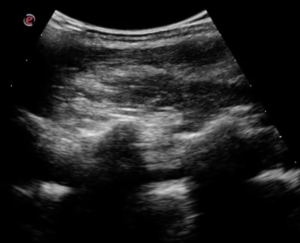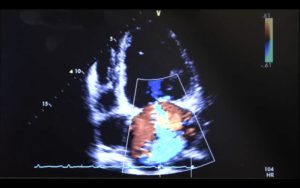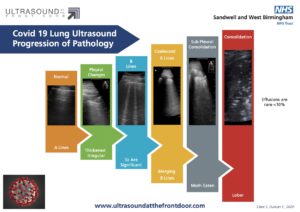Back to accreditation.
The Royal College of Emergency Medicine are the first UK based non-radiology Specialty College to mandate completion of ultrasound training prior to CCT. The previously named RCEM Level 1 Ultrasound has recently been renamed Core Ultrasound.
The curriculum covers specific disciplines required in the Emergency Department:
- Focused Assessment with Sonography in Trauma (FAST)
- Assessment of the Abdominal Aorta for Aneurysm (AAA)
- Focused Echocardiography in Life Support (ELS)
- Ultrasound Guided Vascular Access (VA)
In addition to the practical elements the curriculum also mandates a clear understanding of:
- Understanding the Physics of Ultrasound
- Good Governance in POCUS
A summary of the requirements is found at the RCEM website. A ‘pathway for training’ is linked here.
This pathway differs from other specialties in that there is no mandated number of logbook scans. The understanding is that the triggered assessments will not be completed unless the trainee has gained sufficient competency.
A full document describing the curriculum is linked here. This includes the knowledge required for each discipline and practicalities for completing accreditation.
The general requirements for accreditation are detailed below:
- Theoretical training: this essentially involves completing the e-learning or attending a recognised course.
- Practical training: a period of supervised scanning within the department accruing a logbook of cases.
- Reflective cases: 10 cases (2 FAST, 2 AAA, 2 echo, 2 vascular and 2 misc) completed.
- Triggered assessments in each discipline.
Theoretical Training
This may be completed through completion of e-learning or a recognised course. Although it is not mandated to do a course and the e-learning, most would advocate for to be completed as part of the theoretical training.
The required e-learning has moved from the e-lfh website to the new RCEM Learning platform. The modules are similar and completion on the e-lfh website will generate a certificate that may be useful to show to your regional ultrasound lead.
Courses are a useful starting point for anyone wanting to gain familiarity with the ultrasound machines and how to scan. The direct supervision is invaluable and will provide a solid foundation to build upon during the practical training.
Practical Training
RCEM does not specify a required number of scans to complete for the training logbook. Provided competency is demonstrated for the triggered assessments it is possible to accredit.
Your logbook will need to be shown to your supervisor at the sign off period and adequate experience will need to be demonstrated. Around 40-50 scans in each discipline is likely to be required.
All UK Emergency Departments will have access to an ultrasound machine and it is simple to perform a quick scan on patients even during busy shifts. Remember that these scans are a rule in, not rule out test and any positive findings should be shown to a senior accredited colleague.
All Core Trainees in Emergency Medicine now undergo a period of training within the Intensive Care Unit. It is sensible to take advantage of this opportunity to save images during placement of central venous catheters (e.g. in and out of plane views of the wire and catheter in the vessel) for use in the reflective cases.
Keeping a strict logbook is important for quality assurance and demonstrating experience. Saving scans following the regional and local guidance is essential.
Reflective Cases
10 cases will need to be showcased to your supervisor with written case history. These should cover all disciplines with 2 FAST, 2 AAA, 2 echo, 2 vascular and 2 misc.
These are expected to be your best cases. Information should be included about what probe was used, indication, history, how the image was optimised and what may be done to improve further.
My reflective cases are linked in a pdf here.
Triggered Assessments
The regional ultrasound lead or assigned deputy is required to complete the triggered assessments. The sign off may be performed on the RCEM e-portfolio or on paper for non-ED trainees.
The assessment criteria are detailed in the accreditation document.
What Next?
Many clinicians who have become accredited in RCEM Core Ultrasound will become frustrated with its simplicity and limitations. RCEM have previously outlined training requirements for Level 2 Ultrasound and multiple courses are available.
There has been no updated training curriculum regarding Level 2 and, although courses are available, it is difficult to achieve accreditation. This is likely to be an area of development in the future as POCUS increases in popularity.




